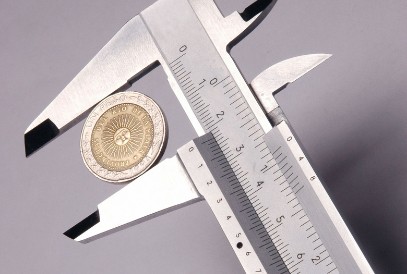Engineers' fee calculation: the guide with everything you need to know.
The
engineers fee represents the document through which the fees for the professional services offered are specified. Understanding
how it is calculated, applicable rates and other related aspects can be crucial for both industry professionals and their clients.
In this article we will explore everything you need to know about
calculating engineers' fees , including calculation methods and practical advice on
calculating professional fees (as in the previous article on
architect's fees ).
What is the engineers fee?
The engineers fee is a
document that details the cost of professional services provided by an engineer.
This may vary based on
several factors including the complexity of the project, estimated working hours, out-of-pocket expenses and the standard fees of the professional or institution to which you belong.
Continue to learn more about engineer fees. If you are interested you could also read our article on the use of the
twentieth caliper .

Calculation of engineers' fees: how to proceed?
Calculating engineers' fees may seem complex, but by following some
basic guidelines , both professionals and clients can get a clear idea of the costs. Generally the calculation is based on:
- Work Hours : Estimate of hours needed to complete the project.
- Hourly rates : standard hourly cost for the type of service offered.
- Out-of-pocket expenses : Additional costs that may include travel, materials, etc.
What are the main methods of calculating engineers' fees?
In the guide to engineers' fees, we mentioned the importance of understanding the
methods of calculating engineers' fees . To make this even clearer, here are the main methods used in the industry to determine the fee:
1. Hourly rate
The most direct method involves multiplying the expected work hours for the project by the engineer's hourly rate. This method is transparent and easy to understand for both parties.
Formula: Cost = Hours of Work × Hourly Rate
2. Project fee
In some cases, especially for projects with well-defined purposes, a
fixed fee can be agreed upon. This method requires a detailed analysis of the work by the engineer to avoid underestimation or overestimation.
3. Percentage of project cost
This approach is common in construction or civil engineering projects, where the fee is calculated as a percentage of the total project cost. The percentage varies based on the complexity and nature of the work.
Formula: Cost = Percentage × Total project cost
4. Combination of methods
In some cases it may be appropriate
to combine several methods . For example, an engineer might charge an hourly rate for the design phase and a fixed or percentage rate for project supervision.
Calculation tools
To facilitate the calculation of the fee, there are
specific tools and software that allow you to enter the project parameters (hours of work, costs, percentages) and obtain a precise estimate. These tools can also take into account variables such as out-of-pocket expenses and additions, giving you a comprehensive view of your expected cost.
Some practical advice on engineers' fees
- Always clarify the conditions : before starting a project it is essential that all parties agree on the method of calculating the engineers' fee.
- Document everything : Keep detailed records of your hours, expenses and any other variables that affect your fee.
- Periodic review : in long-term projects it is useful to periodically review the fee estimate to avoid significant discrepancies at the end of the work.
Are you attentive to details? Then we advise you to take a look at the most beautiful
designer door handles in Italy selected by us based on modernity, style, design and shape.
Engineers' rates in euros: how do they vary?
Engineer rates can change greatly depending on specialization, experience, region and type of project. However, many professional associations provide
guidelines or recommended rates that serve as a point of reference for both professionals and clients.
It is important to consult official sources or discuss directly with the engineer to get a clear idea of the applicable rates.
To provide a more specific estimate in euros:
- Junior engineers or recent graduates : hourly rates can start from around 30 to 50 euros ;
- Experienced engineers : rates for professionals with several years of experience can vary from 50 to 100 euros per hour, or even more, depending on the specialization;
- Senior or specialized engineers : for projects requiring highly specialized skills, rates can exceed 100 euros per hour.
For lump sum projects:
- Small projects can start from a few thousand euros .
- Medium-scale projects can range from tens to hundreds of thousands of euros , depending on complexity and duration.

Final thoughts on the engineers fee
Clarity, transparency in preparation and understanding of the engineers' fee are fundamental to building a relationship of trust between the professional and the client.
It is always advisable
to discuss the details of the fee calculation in advance , including rates and any additional expenses, to avoid surprises and ensure satisfaction of both parties.
In conclusion, whether you are an engineer preparing a bill or you are a client trying to understand the details, having clear and detailed information is essential. Familiarizing yourself with calculation methods, standard rates, and industry best practices can make the process much easier and more transparent.




